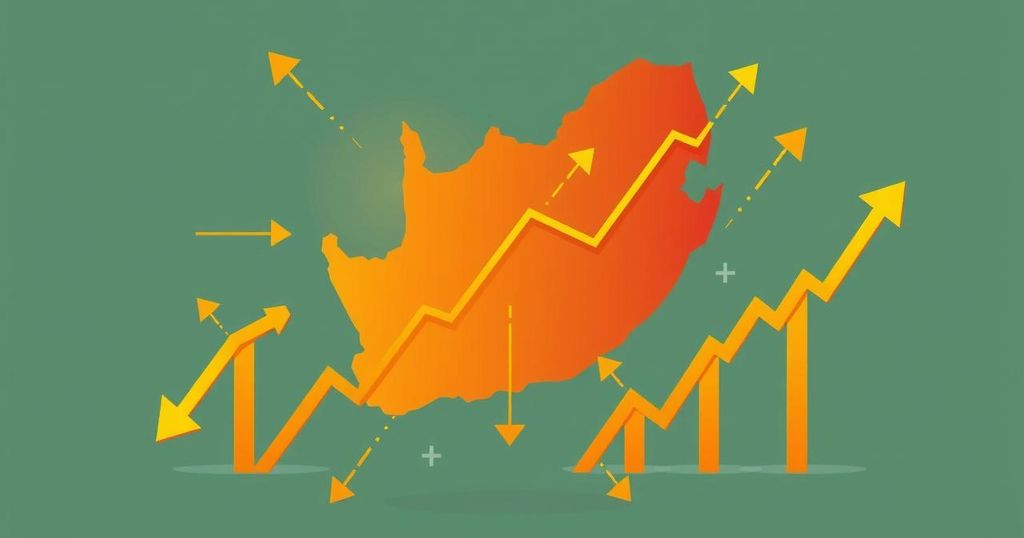Microsoft has announced a ZAR 5.4 billion investment in South Africa aimed at expanding cloud and AI infrastructure. The initiative includes funding for certification exams for 50,000 individuals in high-demand digital skills. This move is aligned with South Africa’s goal of becoming a competitive AI economy and seeks to address critical skill gaps while promoting economic growth.
Microsoft has announced a significant investment of ZAR 5.4 billion by 2027 to enhance its hyperscale cloud and artificial intelligence (AI) infrastructure in South Africa. This initiative aims to support the country’s aspiration to establish itself as a competitive AI economy. The investment builds upon a previous expenditure of ZAR 20.4 billion over the last three years, establishing the first enterprise-grade data centers in Johannesburg and Cape Town.
This current round of funding is designed to enable organizations, ranging from startups to multinational corporations, as well as government agencies, to access modern cloud and AI solutions. Such access is expected to enhance operational efficiency, service delivery, and innovation throughout the South African economy. Furthermore, Microsoft’s commitment to developing a highly skilled workforce is crucial for achieving seamless AI integration into daily life.
President Cyril Ramaphosa emphasized the importance of Microsoft’s long-standing presence in South Africa, describing it as “a vote of confidence in our country and in our economy.” He noted that this strategic investment signals that South Africa’s economy is both promising and secure for business investments. Various sectors, including finance, healthcare, and agriculture, are already benefiting from Microsoft’s advanced technologies.
Brad Smith, Microsoft’s Vice Chair and President, reiterated the company’s commitment to South Africa, stating, “For more than 30 years, Microsoft has been a committed partner to South Africa.” He emphasized the importance of this investment in fostering a future where technology catalyzes prosperity and enhances the technical capabilities of young people.
Furthermore, addressing the critical skills gap in the Global South, Microsoft aims to equip one million South Africans by 2026. To aid job seekers, the company will facilitate certification for 50,000 individuals in high-demand skills. This initiative includes certifications in areas like AI and cybersecurity, helping individuals validate their expertise to potential employers while reinforcing a future-ready workforce.
Microsoft’s commitment also extends to equitable access to technology, having provided over $100 million in donations and discounted software to educational and nonprofit institutions in South Africa. These initiatives are pivotal in creating pathways toward a more inclusive and sustainable economy.
In terms of broader goals, Microsoft envisions South Africa playing a leading role in transforming Africa from a consumer to a producer of AI technology. Emphasizing the need for infrastructure investments, the company aims to elevate innovation and economic growth on the global stage.
Further reflecting its social responsibility, the AI infrastructure in South Africa will adhere to Microsoft’s AI Access Principles, which are designed to ensure that AI technologies serve the public good. Microsoft is also focusing on sustainable practices, aiming to be carbon negative by 2030. Their sustainability efforts have included significant investments in renewable energy and water conservation, positioning the company as a leading advocate for clean energy solutions worldwide.
In summary, Microsoft’s strategic investment of ZAR 5.4 billion in South Africa signals a robust commitment to enhancing the nation’s AI and cloud infrastructure, fostering economic growth, and addressing critical skills gaps. By equipping young South Africans with essential digital skills, Microsoft not only supports individual career prospects but also contributes to the country’s ambition to become a leader in AI technology. This movement towards sustainability and technological advancement underscores Microsoft’s dedication to long-term partnerships that benefit local communities and promote a resilient economy.
Original Source: news.microsoft.com




